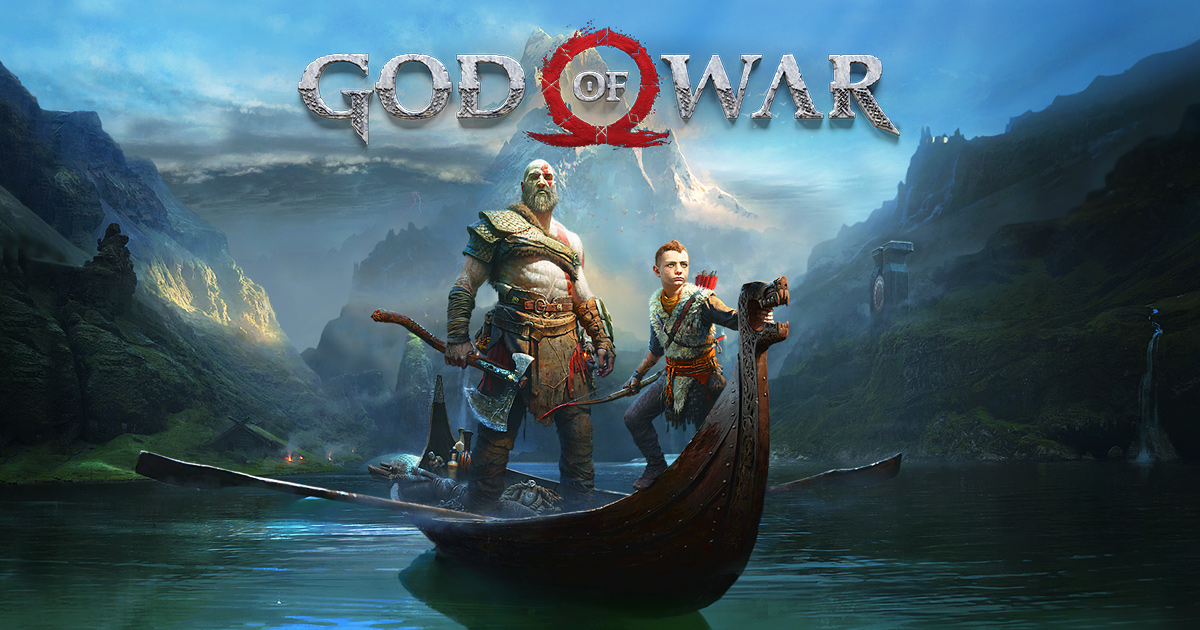
Year in Review 2018 Letter Series:God of War-I Guess This is Growing Up
Hey Moises,
The irony of us doing a letter series on God of War (2018) isn’t lost on me. We’ve both been extremely vocal in our opinion that this game actively sucks. But that’s exactly why I wanted to do a letter series on this particular game with you in particular. I’m not sure that we’ll be able to air our grievances this openly and eloquently, without anyone shouting us down, any other way.
When I think of God of War (2018), I can’t help but think of Jackson Tyler’s piece for Deorbital’s Dogs of War issue: “The Game of a Generation”. This article is my favorite about God of War (2018), aside from Dia Lacina’s Waypoint piece on it, because I feel like it perfectly captures my issues with the game. It’s a gamey-ass game that does little to actually innovate, all while touting its status as Great Art™. I think this passage sums it up pretty well:

“That God of War sells itself as a violent father’s redemption story and ends with a condemnation of overprotective motherhood is the game in microcosm. Its thematic content is the gotta hear both sides of parental abuse; men be raising their godly offspring like this, women be raising their godly offspring like this. Violence is evil, though it’s also good as hell. Things were bad before, but they’re better now, just please don’t ask me how. God of War takes the status quo of video game culture, packages it in prestige aesthetics and sells it back to us as insight. God of War tells us that we’re big boys now, and it’s all going to be okay.”
This game falls into the same ditch that all games that are widely considered to be “masterpieces” by the general gaming community seem to: a shitty, sad man with a horribly violent past who is somehow redeemed through his experience as a father, while doing little to no actual work to attain that redemption. We see it time and time again with games like Bioshock: Infinite, Heavy Rain, and even the Red Dead Redemption series. There is always such a strong desire to make these games out to be deep, serious art, and I can never understand why. The execution of these themes is never done well, and yet people are constantly salivating over them and proclaiming them to be the greatest works the medium has to offer. Why is it that when an emotionally and/or physically abusive and/or absent man is shown to have some sort of capacity to love his child, he’s suddenly a master class in redemption? It’s something I can’t wrap my head around no matter how hard I try, and the phenomenon seems deeply gendered.

Recently, Shuhei Yoshida gave a quote to PlayStation Europe: “God of War shows a perfect blend of a touching, universally appealing story of father and son with GoW’s signature ‘feels so good the controller disappears out of your hand’ combat.” This quote more than anything I think highlights my issue with this game, and the conversation around these types of games in general. What, exactly, makes a story of a father and son “universally appealing”? Obviously, claiming any story is “universally appealing” is trite, but there’s nothing more indicative of who the supposed core audience of video games is, than saying that a father and son story is a story for everyone. Don’t get me wrong, there’s nothing wrong with having an audience in mind. That’s generally the point. But I guess my issue is with the way this audience is held up as the norm, and what that says about them.
We all know this core audience is cis, white dudes who want to think that they’ve grown up with their games. But what does that say about “grown up” games, and the men who have grown up alongside them? That they can run from their pasts, and not learn from, or even acknowledge the nastier, most abusive parts of them? That they can exert the bare minimum of effort to repair their relationships, and be rewarded for it? That a gesture as shallow as finally being able to put a hand on their son’s shoulder after multiple instances of trauma is enough? That a woman’s role is best served in a grave where she doesn’t have to worry about petty things like agency?

There are so many men in my life, some who are extremely close to me, who loved and connected with this game on a deep level. And it makes me worry for them. I can’t help but be concerned about the ways they think of their masculinity, the ways they think they’ve grown up and matured, the ways they think about fatherhood. On the one hand, I’m glad these conversations are something that games can even elicit in them. On the other, I’m worried that this is the beginning and the end of this conversation for a lot of people. It feels like men can start to think about this on a surface level, watch Cory Barlog cry on launch day, and call it a day. Mission accomplished, we’re mature and sensitive now.
I know games can’t save us, and putting that kind of pressure on them gets us nowhere fast, but I can’t help struggling with the shallowness of this conversation, and the depth it’s simultaneously afforded by the industry at large. I’m curious if any of this played into your feelings on the game? Did playing this game as a man color your perspective on it more than it did mine? Did you find these conversations as frustrating, and concerning as I did?






1 thought on “Year in Review 2018 Letter Series:God of War-I Guess This is Growing Up”